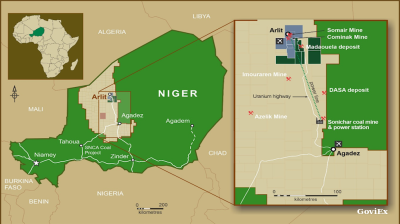Only 46 out of 193 UN member states signed a joint UN declaration on September 12, denouncing Russia’s alleged involvement in a drone incursion into Polish airspace two days earlier, as the Global South support for Western-backed Ukraine in its war with Russia wanes.
In addition to Poland, which called for a vote in the UN for the first time ever, those that signed the declaration included almost exclusively Global North countries: Austria, Belgium, Hungary, the UK, Germany, Greece, Georgia, Italy, Spain, Norway, the US, Ukraine, and France. Amongst the non-Western supporters were South Korea and Japan, both close US allies. These countries insist that Russia violated Poland’s airspace 19 times and escalated the conflict.
Polish Secretary of State Marcin Bosacki presented a joint statement ahead of a Security Council meeting requested by Warsaw. “For the first time in its history, Poland has decided to request the convening of an emergency meeting of the UN Security Council,” he said.
The drone incursion was “yet another flagrant violation of international law and the Charter of the United Nations committed by the Russian Federation while attacking the territory of Ukraine.” In response to the incursion, Polish Prime Minister Donald Tusk triggered Article 4 of the Nato treaty, which calls for consultations amongst members when a country feels their national security is under threat.
However, most of the Global South countries, who are becoming increasingly allied with the Russo-China axis, either abstained or voted against the motion.
In a joint statement, the 46 nations including the US called on September 10 for stronger international action at the UN after Russian drones violated Polish airspace, in what they described as a “destabilizing escalation” threatening regional stability.
Shifting geopolitical sands
The low number of votes stands in stark contrast to earlier UN votes to condemn Russia’s invasion of Ukraine over three years ago, when the overwhelming majority supported the motion. In a series of UN votes to condemn Russia’s invasion, typically around 140 nations supported the motion, with a mere handful voting against.
In the meantime, Russian President Vladimir Putin and Chinese President Xi Jinping have worked hard to rally the Global South to their flag and the election of US President Donald Trump, who has introduced aggressive trade policies, has only catalysed the process.
The growing Global South unity and its increasingly active opposition to the Western alliance was on show at the recent SCO summit where in addition to the Putin-Xi bromance, Prime Minister Narendra Modi surprised by attending the event, his first visit to China in seven years, and gladhanded with the other leaders, including with Xi.
India and China are attempting to reset their prickly relations after years of military tension on their mutual border in response to Indian anger after the Trump administration doubled tariffs to 50% in August as punishment for continuing to import Russian crude.
The success of the SCO summit in China comes on the heels of a slew of Global South summits, including the G20, BRICS, ASEAN and Eurasian Economic Union, which are becoming increasingly geopolitical in nature and largely exclude Western leaders. The only EU leader that made it to Tianjin in China for the SCO summit was Slovak Prime Minister Robert Fico, who has been calling for the end of the war in Ukraine and lifting of sanctions on Russia.
Incursion, not attack
Although the drone attack on Poland was intentional, it did not cross the required threshold to invoke the famous Article 5 that could trigger a collective military response and start WWIII, Ukrainska Pravda reports.
There have been several Russian missile and drone incursions into Poland’s airspace since the war started, including two missiles that came down in a Polish village in November 2022 killing two people. However, this was the first time Poland scrambled its jets and shot down Russian ordnance over its own land. Previously the governments of the affected states insisted that these incursions were accidental, "unintentional" violations of Nato's airspace and therefore could not be considered attacks against the Alliance that would trigger Article 5.
Poland is collecting the drone debris, and they appear to be, based on reports so far, the cheap plywood and polystyrene foam Gerbera drones largely used for reconnaissance that did not carry an explosive payload, not the tougher Geran-2 drone, an Iranian-designed Shahed-136 loitering munition, that usually carries an explosive payload and is widely used in Ukraine.
"The drones were not carrying explosives," said government spokesperson Adam Szlapka on September 10, Deutsche Welle reports.
“When 19-20 drones cross the border simultaneously, that cannot be a coincidence. This was the deliberate targeting of military assets towards Poland,” Ukrainska Pravda said. “The barrier here was that the drone attack on Poland did not reach the threshold required for collective defence. For this to happen, all Nato members must agree that an "armed attack" has indeed taken place.”
However, the Russian drones might have been targeting the airport in Rzeszów, which is vital for the West’s military supplies to Ukraine, German media claimed on September 11.
Ukrainska Pravda speculates that the incursion had several purposes: to test Nato’s defences just as the Russo-Belarusian quadrennial Zapad-2025 military exercises get underway; underscore Russian President Vladimir Putin’s propaganda message of “helpless Nato” to his own population; and sow confusion and distrust amongst both Nato allies and Poland’s population. The incursion was accompanied by a convincing disinformation campaign that led one in three Poles to believe the drones originated in Ukraine and was a false flag operation by Kyiv to garner more support.
The use of reconnaissance drones without a deadly payload should ensure that Nato Article 5 would not be triggered, but as Ukrainian President Volodymyr Zelenskiy pointed out, the incursion is another incremental escalation by the Kremlin. It also had the additional benefit of dealing a severe blow to confidence in Nato’s air defences as Nato had to scramble additional jets from neighbouring countries to meet the threat as Warsaw was unable to stop the attack on its own.
Nato General Secretary Mark Rutte said in a statement: “Last night, numerous drones from Russia violated Polish airspace. Our air defences were activated and successfully ensured the defence of NATO territory, as they are designed to do. Several Allies were involved alongside Poland. This included Polish F16s, Dutch F35s, Italian AWACS, NATO Multi Role Tanker Transport, and German Patriots. I commend the pilots and all who contributed to this quick and skillful response.”
Organisations monitoring public discourse in Poland report that they are seeing a visible boost to Russia-friendly narratives in Polish social media such as "Nato won’t protect you" and "This is Ukraine's fault," Ukrainska Pravda reports.
One of the positive side effects of the attack has been to unite Polish Prime Minister Donald Tusk and the new Polish president Karol Nawrocki, who have been at each other’s throats, paralysing Polish politics.
"We — the president, myself and my ministers — are absolutely determined to act like one fist, without differences of opinion," Tusk told the Sejm, the parliament of Poland. "We must pass this test in unity. There can be no gap into which the enemy, our eastern neighbour, can put its paws," he stressed.
US backs Poland, but Trump quibbles
The US said at the United Nations Security Council meeting that it would defend "every inch of Nato territory" following a Russian drone incursion into Poland—marking the first known instance of a Nato country shooting down Russian drones during the full-scale invasion of Ukraine.
"The United States stands by our Nato allies in the face of these alarming airspace violations," said acting US Ambassador to the UN Dorothy Shea, addressing the 15-member Security Council.
Her remarks clashed with Trump’s own comment that he believed the incursion could have been a “mistake” – a remark that earned him a sharp rebuke from Warsaw, which claims to have evidence of Russian ill intent.
"We know, and I repeat, we know that it was not a mistake," said Bosacki during the UN session, displaying photos of the wreckage and pointing to Russian markings on the drone. "Poland will not be intimidated."
Russian Ambassador to the UN Vassily Nebenzia rejected the accusations and said Russian forces had been targeting Ukraine at the time with no intention of striking Polish territory. “There were no targets marked on Polish territory,” he said. “The maximum range of the drones used in this strike did not exceed 700 kilometers, which makes it physically impossible for them to have reached Polish territory,” apparently ignoring the documented Russian drone wreckage that is scattered all across the country, presented by Poland at the session.
News

US suspends strategic dialogue with Kosovo amid political deadlock
Washington singles out Kosovo's caretaker PM, leftwing nationalist Albin Kurti, who has a strained relationship with the Trump administration.

GoviEx, Niger extend arbitration pause on Madaouela uranium project valued at $376mn
Madaouela is among the world’s largest uranium resources, with measured and indicated resources of 100mn pounds of U₃O₈ and a post-tax net present value of $376mn at a uranium price of $80 per pound.

Brazil’s Supreme Court jails Bolsonaro for 27 years over coup plot
Brazil’s Supreme Court has sentenced former president Jair Bolsonaro to 27 years and three months in prison after convicting him of attempting to overturn the result of the country’s 2022 election.

Iran cleric says disputed islands belong to Tehran, not UAE
Iran's Friday prayer leader reaffirms claim to disputed UAE islands whilst warning against Hezbollah disarmament as threat to Islamic world security.



